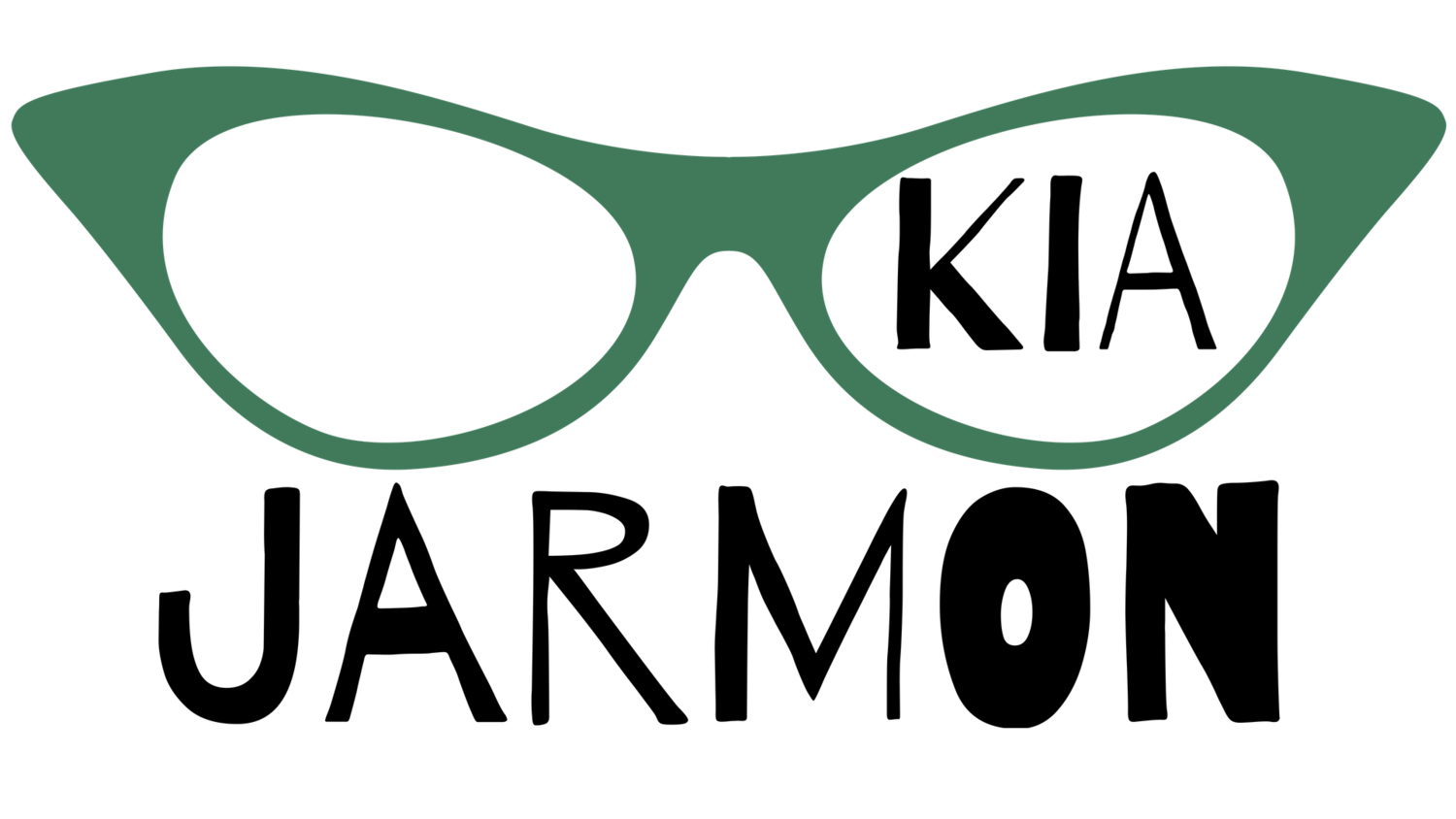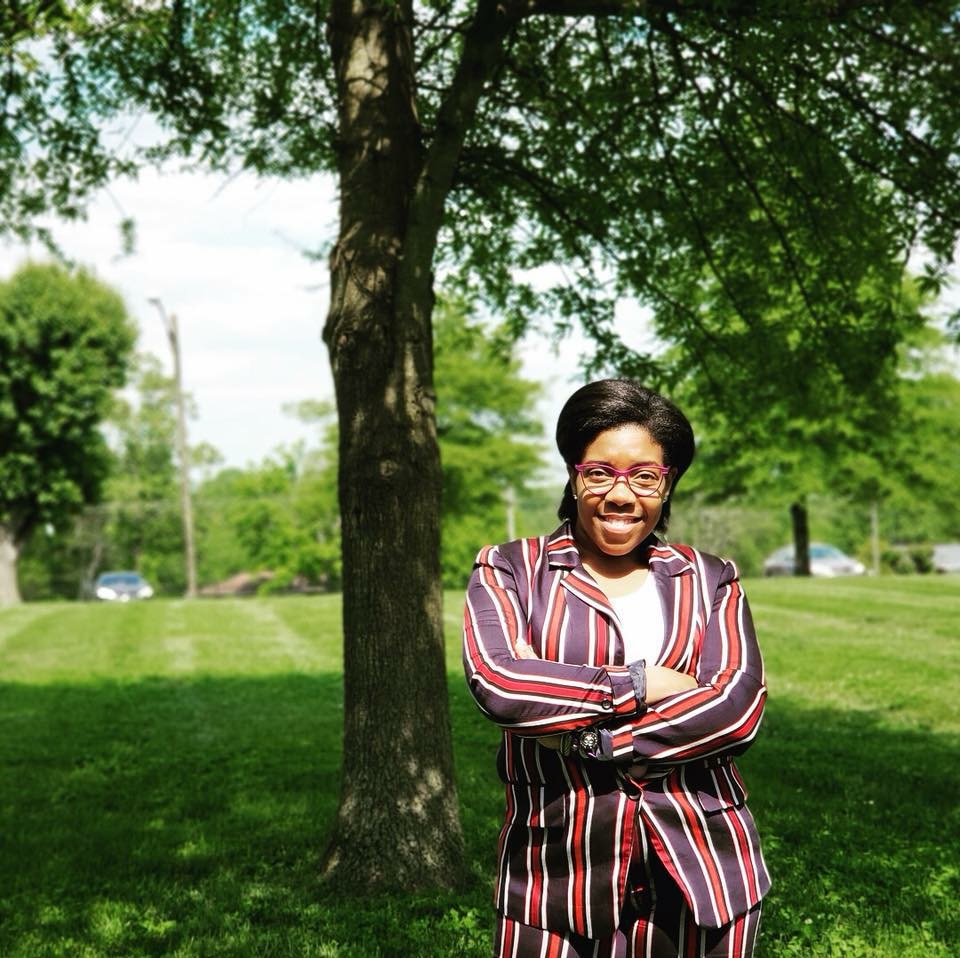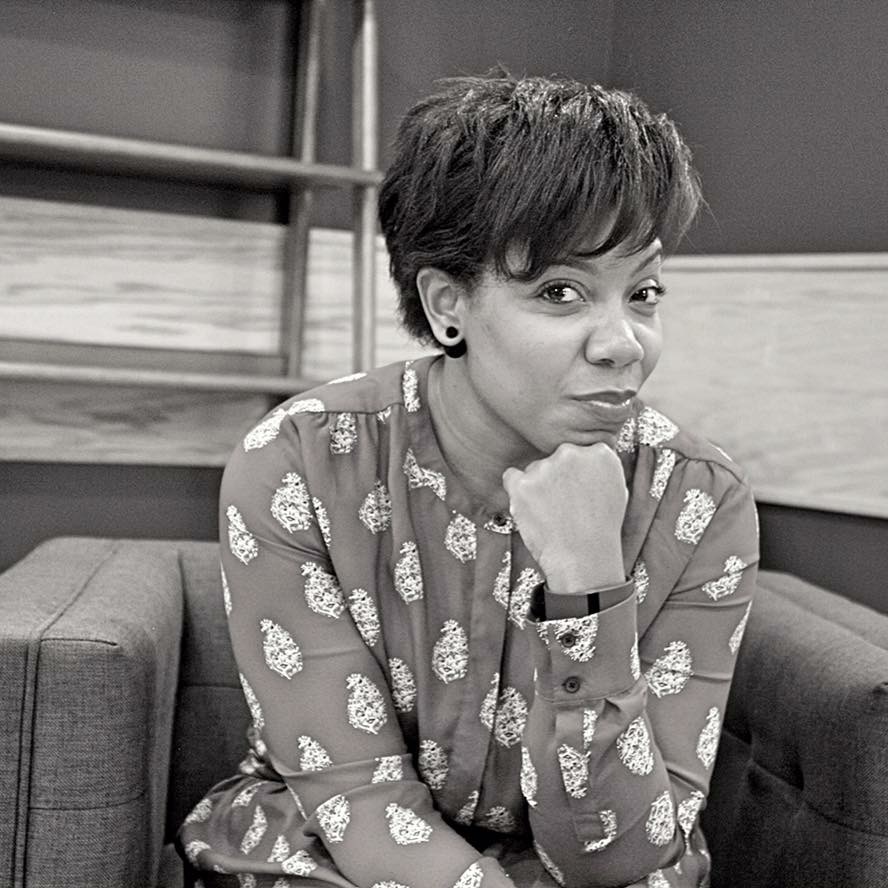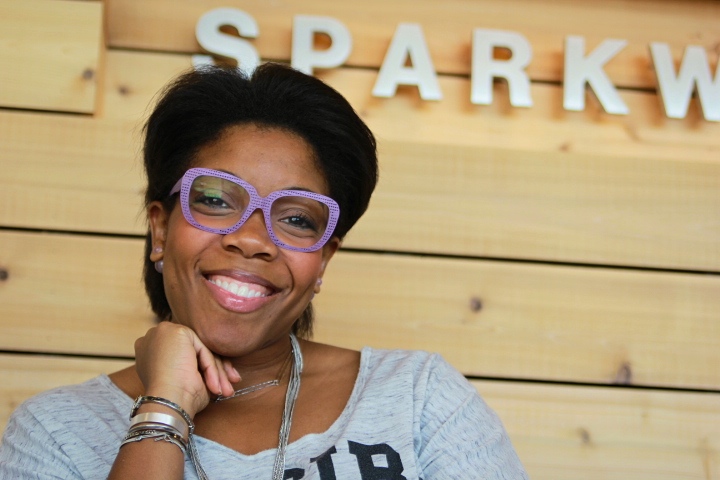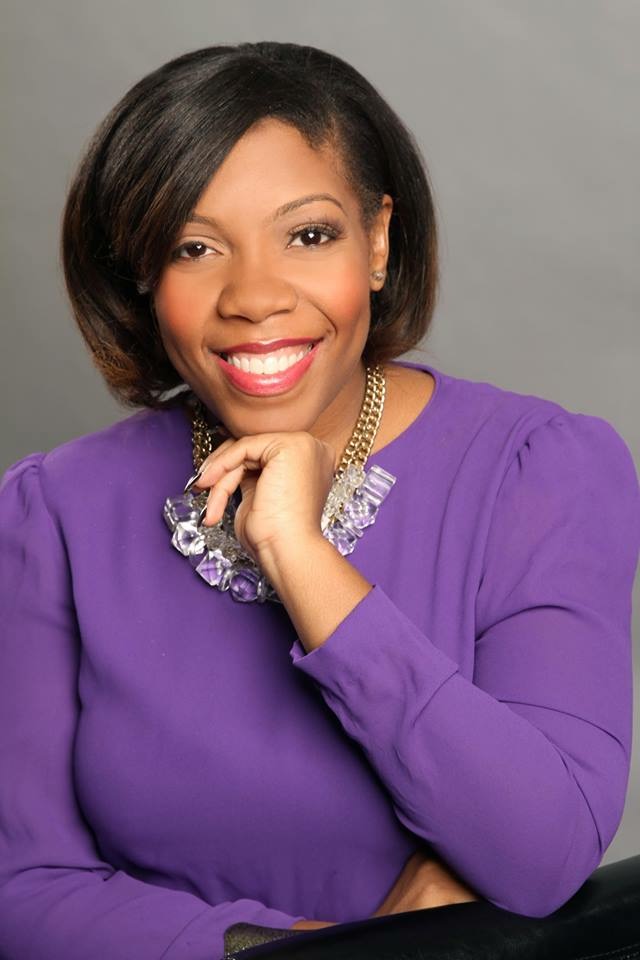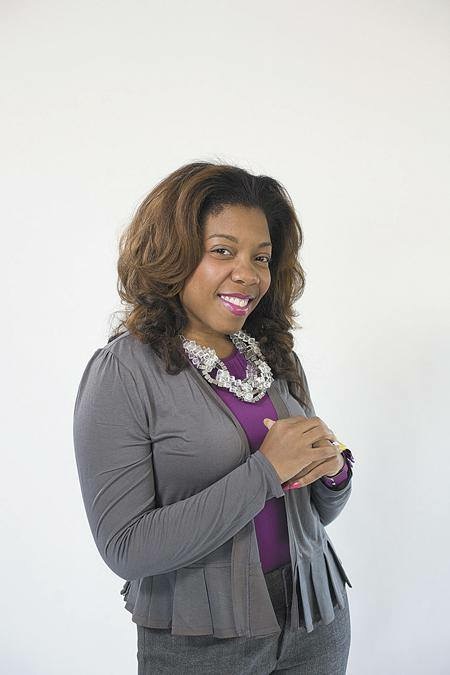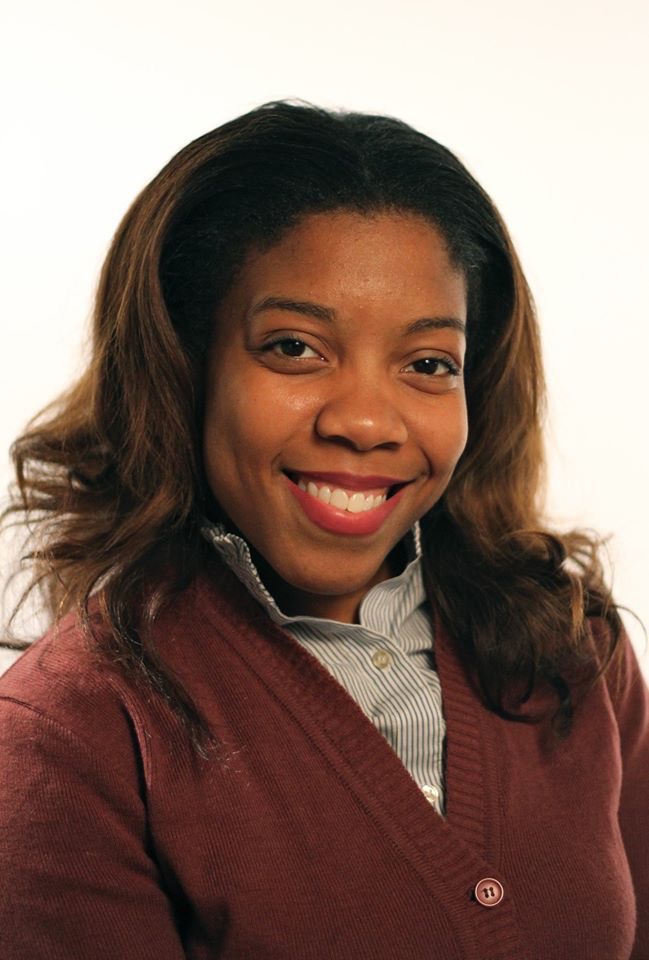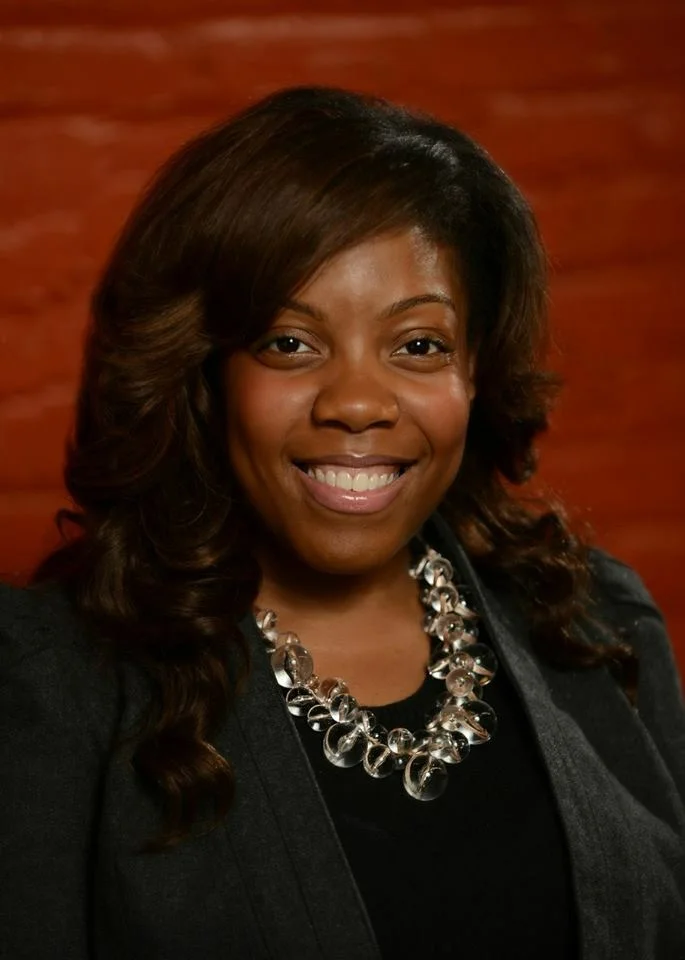12 Lessons Learned in 12 Years of (this)Business
/We, at MEPR Agency, have just ended our anniversary (month) - June 2018.
The last twelve years have seemed to fly by. I know, I know, everyone says that but really, it’s true. It’s why we have to live life to the fullest because we’ll never get the time back.
If you’re unfamiliar, here’s my spiel.
If you are familiar, skip ahead to my first lesson.
I am a born entrepreneur. I believe there are layers to entrepreneurship – born, accidental, familial, intraprenuer, unemployable, or some combination of these - which is not to be confused with someone who is solely a business owner. But that’s another post for another time. My first brush with business was in second grade when I attended the boys and girls club and I sold jewelry (which I still have the box with string in it) for cash. I remember it like it was yesterday, how fascinated I was with breaking a five-dollar bill. I thought, “I now have “less” dollars” because I only had the single bill and I gave them multiple dollars back. I also remember how the Club called my parents because I was taking my peers’ lunch money. Those moments are among a series of amazing moments that have changed my life and really encouraged my entrepreneurial spirit.
Moving forward, while in college I co-owned a marketing and promotions company where we produced music events. My first office was on that Belmont University campus where we (my two partners and I) had desks, a whiteboard, very large computers, and (wait for it…a little longer), a fax machine. Oh, and a key to let us in because we were legit. I received my first entrepreneur award from that school. It means so much to me but somehow it’s at my parent’s house *insert eye roll*, along with other things I dare not take like proof of my degree.
Two weeks after graduating from college I started MEPR Agency (using a longer name that always was shortened to MEPR). When I first started this company I also worked in the music industry to support my then desire to be an entertainment publicist (my degree is in music business). I was laid off November 2010 from a Gospel record label and the rest is what they call history.
Much like history, this moment in time must be documented so that we can learn, grow, and pivot when necessary.
So, what have I learned? Enough to fill a library with an overflow storage space. But to protect your time and my fingers from typing, I’ll give you 12 amazing lessons that I hope you appreciate.
*disclaimer language: these were developed over 12 years + a lifetime of events that have led to these. With that said, if you are new to business or an intern or new to the workplace, these might not apply to you today. Now, if you’ve been in business 30 years and still have some challenges with these things, let’s talk. Happy to help you get clearer. There are written in love and without judgement. AND, results may vary.
Focus. Earlier this year I was featured as one of Nashville 100 Leading African Americans. I am honored. In the podcast interview shared that I’ve focused on one thing for 12 years. While I have made several shifts in the work we do and the types of clients we’ve served over that time, I am pretty clear that it’s been the head down, strategic planning that has helped me to go deeper, farther, and faster, in some ways, than sometimes imaginable. Most everything you see associated with me will triangulate back to communications and how we better connect people to information and resources in order change culture, behavior or other actionable outcomes. That might mean a number of these things are referenced - operationalizing an organization then developing communication channels to showcase its high function; community led design/development processes; mediating the intangible (like emotions and truth vs fact) to get to tangible outcomes; aspects of psychology, social services, and human behavior and how they inform how we communicate; social and cultural resilience, all with the long-term goal of having true intercultural communications in our city/country. At the core, they all are rooted in how we better communicate and relate to each other.
I hope in the near future to share some new developments that I’ve been working on but pure focus:
- Helps minimize brand confusion;
- Helps people refer you to more opportunities;
- Helps you sell your value over and over again;
- Helps you discover and work within your why (mission) vs your what and how (services); and
- Makes it easier for you to talk about the work versus thinking of which hat you need to put on.
Time does not equal money. When you’re young and sassy you spew things like “I’ll sleep when I’m dead” or “my time equals money”. Those are cute. But they begin to sound a little sophomoric once you have a little more skin in the game. I’m not saying it’s not your truth, however I am saying that it can’t be your truth forever. The simplest way to put it is that I can make more money. Every day I get a chance to make more and more money which could make it sting a little less when I lose money or don’t make any in a day or 90 days. But I do not get to replace my lost time with more time. It’s gone.
Time is a very precious commodity, one that can sometimes afford us more than money. As you grow, consider how you use your time, and most importantly how you let others use your time for you.
Footnote: It is my belief that many of us have negative or inexperienced relationships with time and money. That shows up in how we spend or neglect to address both. It shows up when we continually undercharge and overserve. It shows up when people intentionally call you because you’ll give them your last inkling and they’ve pushed it to a harmful level. It also shows up when it’s time to discuss fees and timelines during the new business process and you flinch. People can tell your scared so they try to jip you. Get better about these two things. Both will cost you a lot.
Timing is EVERYTHING. On more than a few occasions I’ve met someone in a peripheral way - casually or in a speaking engagement - and it’s been years before we actually meet formally or speak again to work together. I don’t believe in rushing the process. It’s how you burn a relationship or burn yourself out. It’s also how you sign up for something you can’t manage.
I think about the timing of life’s events and how cyclical our world looks. It’s because timing has to be right for things to manifest or perish. Look at what’s happening in our world today. We have been here before. We’ve seen families separated before. We’ve seen trauma used as a tool for manipulation and community control. This isn’t new behavior. But it happens because as people we’ve been seeding the fields and now it’s a harvest – the food just doesn’t have to be for edification, if you know what I mean.
If you know that timing is important then you also know that what you are doing in the meantime is equally, maybe even more, important. How are you setting yourself up to receive what’s next? Who else do you need in your corner before (fill in the blank) can take place? What can you be doing to shift the future to work in your favor? It takes years sometimes to see the benefits of a seed. Don’t rush its growth.
Learn a lesson or teach a lesson. I was working with a colleague once and he shared a lesson that his mother shared with him, “Learn a Lesson or Teach a Lesson”. I’ve clung to that as a personal motto since that moment. It’s so critical to sensibly evaluate things that happen with you, to you, or around you and find out at the root what is being shown or what is to be shown to someone else.
This is a life lesson but also a business one. When the feeling of defeat creeps in, ask yourself, ”What am I to learn from this moment or this series of moments?” Go beyond face value. What are you really learning? What are you willing to learn or teach? What can you learn, master, and teach someone else?
You get paid for the process. If you believe that you get paid to deliver a product or service, then you might have built a job and not a business. As business owners, and maybe even more importantly as entrepreneurs, it is our responsibility to build and sell the process. People pay us to solve a problem, want or a need over and over again. Quite honestly, while your audience may have an idea of what they’d like, they rarely know what they really need to get them to the results. That’s what you’re building. The process to make them know why they need a hammer and a screwdriver when they only came in for a nail.
It’s why people scrunch their nose up at our approach to public relations. The definition doesn’t mention media relations or social media only. It says a management function that aids an organization in connecting a two-way conversation with an audience, and its outcomes align with the organization’s strategic goals. While this is my definition it’s astonishing how many of us build a widget or send out press releases and think the work is done. It is my responsibility to work through the process to address and remove the pain they are in.
All of this is how business owners can own a business and never know how to do the services offered. It’s the process of getting to the truth of what someone must have and addressing that. Believe me, most of your gas station owners know nothing about oil. But they know the process of meeting a required need for most vehicles on the road.
Lastly, I have found that if you know the process, you don’t always have to have an immediate answer. It will reveal itself while working your way through the process.
Pivot don’t swivel. There are several benefits to working with and being a small business. One of them is the opportunity to make small incremental pivots, as necessary, that doesn’t cause interruption.
I often say that my superpower is perspective. Because I have a gift for anticipating needs, I have found that I am pretty great at seeing economic challenges, changes in the industry, trends that are coming in the next year or two, and so forth. That helps me to know when to pivot left or right or to stay the course.
What I would caution as you are in constant evolution of your business is 1) pivoting too soon, or 2) a hard swivel that leaves people confused about if you are still in business. Equally, I share not to be scared to pivot. A failure to pivot could be the difference of success between years three and four, or the unemployment line.
Never work for free. I always say, there is a cost associated with free. In my experience, free is always going to be undervalued, for both parties. When you give a service away from free, you will almost always have a hard time assigning its value to the person who receives it. Equally, the person who receives free products – while grateful – has the chance of seeing it as an item or time that can be thrown away. It’s the psychology of human behavior. We want what we can’t attain. Once we are given something so freely, it loses some of its luster and shine.
This isn’t to say that you shouldn’t volunteer your time or help others. This is to say that if you want there to, in return, be seen as valuable, you should consider what it means to have some mutual investment.
Oh, and while you are assigning value to your work, add 20% to the bottom line for over-servicing.
Don’t take money from people who aren’t your most ideal client. Like at a car dealership, there is power in walking away. If you’ve been in business longer than maybe a year or two, you are probably very aware of your most ideal client/customer. The question really is, “are you doubling down and focusing on cultivating that audience?” OR, are you still accepting checks from people who cause you headache and frustration? Either is fine, but I will share that I learned very early on that I wasn’t interested in the lack of value and return I received from working with my most un-ideal clients.
I understand that early in business there might be a need to work with people or organizations that may not be the best fit. As a matter of fact, you have to do that to really learn what works best for you and your team. However, if you stay in that lane too long you are bound to get run over or better yet overrun by things that don’t serve you. Your clients/customers are just as representative of you as you are of them. It’s a two-way street.
So just walk away. That’s a lived-out version of the definition of self-care.
Collaboration over competition. The saying two heads is better than one can certainly be true. In 2013, I spoke about developing a partner program that would help you to better position your business as a complement or supplement to another’s business. That model has proven to be one of the most effective, and inexpensive, investments that I’ve made. Because at the end of the day, if we are all focused on adding value and providing measurable (and strategic) outcomes, there’s enough room for us to all win, together.
In that vein, another nugget that is helpful as you build a practice of collaboration.
When you are called on by a perspective client and you know you aren’t a good fit, send them to a colleague. When you meet a potential employee and they might be a better fit for someone else, send them to a colleague. These activities change the way people respect and value your business, and frankly it’s just good dharma.
Go deeper, most people don’t live there. Several years ago, in our team strategic planning session I remember saying that I wanted to make sure that we went deeper with the work. After a quick observation, it is not difficult to see the landscape of PR, communications, marketing, social media, web design, and graphic design companies are aplenty. And there have been many more added, as well as some that have closed, merged, or been acquired. This is a great market. And because of that, I realized we had to go deeper.
You will learn that most people aren’t willing to go much deeper. And granted, you don’t have to go beyond the surface to be successful. But you do have to do something different if you expect to present something other than status quo, and receive something more than a paycheck. This way of thinking has allowed our team to partner with the many, many agencies or teams in the city who need us to complement their efforts.
In any business, you have to determine how you want to be positioned. As the only agency in the city positioned as a boutique, I knew that I wanted to make sure that in addition to traditional services, that we offered strategic counsel on specialty areas and connected with audiences that were often too difficult to reach or easy to neglect, well until now. I realize that the easiest place to play is in the shallow end with the traditional, sometimes stale, approaches. I needed us to provide something different, more disruptive.
And we have. The depth of work that we do allows us to see a vastly different media landscape than what’s on the newsstands or on television. We’ve determined that telling stories must be more than an inconsistent blog or social media posts. And impacting people to make a change has to be measured beyond sales, clicks and likes.
We have several beliefs including: We communicate with people - of all backgrounds - where they feel most comfortable; we provide narrative to the numbers, data is only as good as its context; we are storytellers and help others feel comfortable sharing and owning their stories; we help people leverage their privilege to build community that’s worth communicating about; we believe inclusive communications should be the undergird of every project, not an add on; and we believe we must sweep in front of our own door (internal communications) before we ever invite others in (major kudos or publicity).
- Representative leadership and recognition matter. Fight for it.
In this world, it is my belief that you can be what you can see. Our young people depend on seeing others who they can relate to in some way – whether neighborhood relation, race/ethnicity, gender, orientation, faith affiliation, and so forth. So, if they can see a woman leading a company, then they aspire to reach her level and more. Because she’s shown them it’s possible. And, if you see an African American man pull himself from the humblest of beginnings to become a best-selling author, you can begin to picture that for yourself. That’s representation.
We are relational people. Many of us don’t like the idea of being a transaction or a number. We want to know that we matter. The only way we ensure that we can build and connect with a community (in our work or otherwise) is if we make sure that skilled, qualified, excellent people who come from diverse backgrounds and varying experiences able to be in elevated, leading roles.
To be clear, I am not an advocate of putting people in place because of their diverse background alone. I often teach that we must lead with the skills and needs of a position – and sometimes that means we have to coach someone to be ready for that position (that’s equity) - and then we do more than the business as usual amounts of outreach to seek those people out who might have non-traditional paths or may not be as “popular” in an industry, and can bring experiences that are often left out.
I am equally as clear that we have to be careful of checking boxes of diversity during this process. Women and New American populations have the ability, if working under a status quo model, to overshadow those who are African American or of multiple diverse groups like a gay black male or woman. It’s not enough to say “see, we have a woman or a Latino” and think you’ve done enough.
AND, if you are in a position of leadership or decision making it is your responsibility to open the door for others, or get them prepared for such a time that they can be called on. Pull out the chair, or drag a chair in from outside to make sure that you are not the only person with a varying perspective. Because no one can speak for a whole community of people (though we know ethnic minorities are often placed in that position to generalize everyone like we’re monolithic, but I digress.)
Lastly, after you’re in your position, and you feel comfortable and have done the work – not just your job but extraordinarily above what is called for – seek, or at least don’t shy away from, recognition, in a genuine and thoughtful way. Why? Because you can be what you can see. The youth and those who are our peers, or even those older who are looking for how they continue to impact the world, are looking to you. That recognition helps them to see a reflection of what they can aspire to reach.
- Bigger is not always better. I’ve written on and discussed this topic a time or two and it never gets old. I’ll let you take a peek at the previous blogs but here’s what I can say:
- As my friend says, there are riches in the niches. Larger companies often struggle to serve as specialists. And while nothing is wrong with generalists, do you remember the guessing game that happened at your last general practitioner appointment about what was wrong with you? I do. Several $$$ later and three misdiagnoses and I’m healed. I’ll leave it at that.
- The depth of knowledge is different in a smaller shop. It’s like swimming in the bath tub vs the 10 feet. We are both in the water, maybe we’re even swimming but the experience and results of that experience are very different.
- The agility of a lion. The lion is known for hitting the ground running and in a matter of seconds has made decisions that can affect the entire pride. The same is true of a smaller business. What I love is that there is a great symmetry between a smaller business and a lion like the speediness, ability to pivot (and course correct), ability to forecast and anticipate, the quick and efficient decision making, all while serving as a leader in an industry or among a tribe.
All in all, 12 years has served me well. I’ve learned and grown so much. I’ve had amazingly high moments that could carry me another twelve years, and incredibly devastating moments that while they only lasted for quick moments they were challenging. There are people who I’ve met who I’ll never let go of and people I couldn’t get rid of fast enough. There is technology that has allowed me/us to be more efficient and times when I want to throw the whole computer and phone away. As a company, we’ve worked on some dream projects, we’ve launched programs like the Mentorship Project – that graduated more than 20 aspiring PR professionals, Meet the Press, and the Innovation Fund micro business grant. I’ve had a radio segment, weekly online segment with the Tennessean, frequent television news guest, and guest blogged with 12thand Broad, consistently. I am a professional speaker (meaning I get paid to speak) and I can’t wait to do much more. I’ve been acknowledged in big ways, receiving some really great awards and recognitions. I’ve served on boards and as counsel for some of the most noted organizations in the city. And my reasoning for doing all of this magnified when I became a parent to my threenager, Teddy.
I’m grateful for all who’ve supported this work. I’m in love with the work that I do. It’s be a pleasure to serve so many organizations, departments, and businesses and I look forward to many, many more.
Cheers to 12, 24 36, 48 more years. I’m still having lots of fun.
-----
PS: because I couldn’t share more lessons, here are some really great quick lessons that I’ve experienced or observed that have also been instrumental in my work and growth.
- Have a short-term memory.
- Have a personal board of directors.
- You can get paid to do bad business. But you won’t last forever.
- F(orget) balance, set boundaries. You need healthy boundaries or you will forever be unbalanced.
- Schedule everything.
- Write it all down. Notetaking is one of many undervalued, highly needed skills.
- Your clients represent you too. It’s a relationship, a partnership. That means that we both have some stake in its success. Which further means, we have to protect each other and represent each other well.
- Self-evaluation is the gift that keeps on giving. There is nearly nothing anyone can tell me that I am not crystal clear of, and some things I’m making great efforts to correct.
- Fire yourself over and over again. Equally, reinvent yourself over and over again.
- Believe in yourself more than anything else in this world.
- Your energy shows up places before, after, or instead of your physical presence. Protect its flow.
- Ego can protect you. It can also hurt others.
- Master, then teach.
- Be uncompromising about…your money, time, ethics and your reputation.
- People can be the greatest asset and greatest challenge to your business growth.
- You are called to do more than work. Your headstone likely won’t include your profession. What is your legacy?
- Serve other people without need for a return.
- Soft skills, or lack thereof, are usually what gets you fired or never hired.
- You are the media. Use your platform and your audience to do some good, no matter how many or few people it reaches.
- You can own a million-dollar business and be broke.
